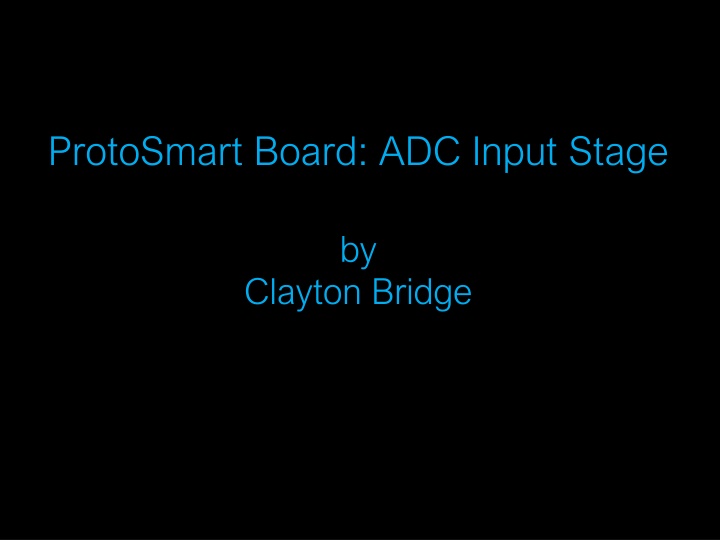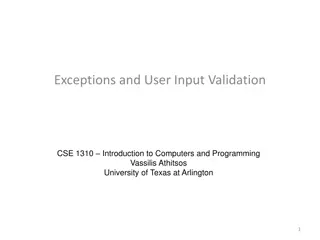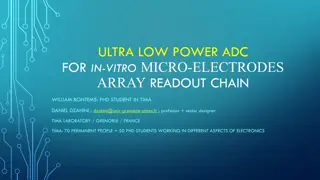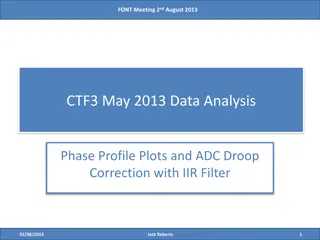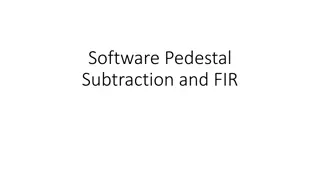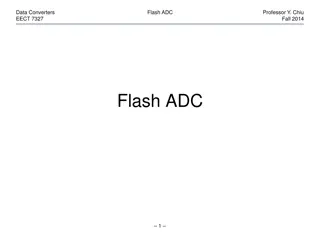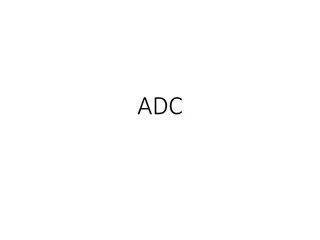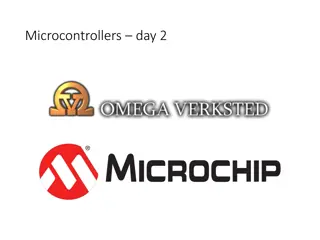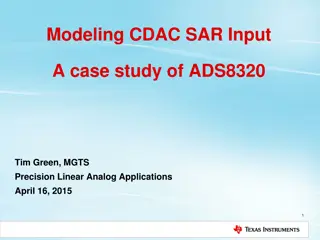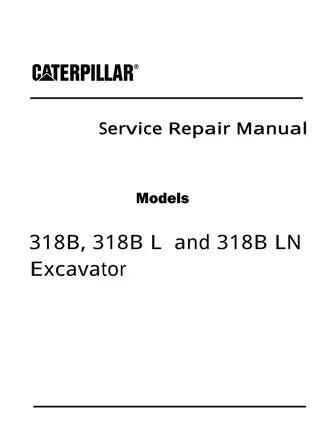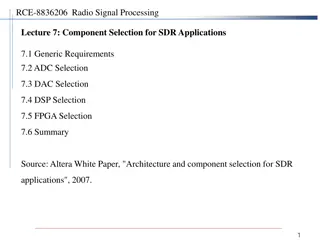ProtoSmart Board ADC Input Stage Solution
The ProtoSmart Board ADC Input Stage Solution addresses the voltage and current measurement specifications while ensuring the ADC range requirements are met. The solution involves manipulating the signal to fit within the desired voltage range for accurate measurements. By dividing and conquering each stage, such as the Unity Gain Instrumentation Amplifier and Scaling Stage, the signal is processed effectively. Explore the conceptual, functional, and electronic aspects of implementing this solution to optimize signal conversion for the ADC input stage.
Download Presentation

Please find below an Image/Link to download the presentation.
The content on the website is provided AS IS for your information and personal use only. It may not be sold, licensed, or shared on other websites without obtaining consent from the author.If you encounter any issues during the download, it is possible that the publisher has removed the file from their server.
You are allowed to download the files provided on this website for personal or commercial use, subject to the condition that they are used lawfully. All files are the property of their respective owners.
The content on the website is provided AS IS for your information and personal use only. It may not be sold, licensed, or shared on other websites without obtaining consent from the author.
E N D
Presentation Transcript
ProtoSmart Board: ADC Input Stage by Clayton Bridge
The Problem ProtoSmart Board Design Specifications: Voltage Measurement Minimum: Voltage Measurement Maximum: Current Measurement Minimum: Current Measurement Maximum: measured across a 0.2 current sense resistor: - 10 + 10 - 1 + 1 +/- 0.2 V V V A A ADC Specifications: ADC Range (IN+ - IN-) Minimum: ADC Range (IN+ - IN-) Maximum: -2 +2 V V
The Real Problem The Caveat: IN+ and IN- range: 0 - 3.3V Summary: ADC wants to see -2 to 2V range DIFFERENCE between IN+ and IN- BUT IN+ and IN- MUST remain between 0 3.3V
The Solution (Mathematically) Minimum Signal Representation: Voltage: Current: IN+ IN- ADC_out -10V -1A (-0.2V across Rsense) 0V 2V -2V Maximum Signal Representation: Voltage: Current: IN+ IN- ADC_out +10V +1A (+0.2V across Rsense) 2V 0V +2V
The Solution (Conceptually) What are we doing again? Massage the measurement signal to covert it to a 0-2V range and feed to IN+. Feed (2 IN+) to IN- Converting ProtoSmart Board measurement range to -2 to 2V for ADC.
Divide and Conquer How? Examine each function or stage separately and observe their effect on the signal. We will input a 20Vpp sine wave centered at 0V representing the +/-10V measurement signal and observe the output after each stage.
Scaling Stage: Inverting Amplifier V_DIF vout_scaled
Choosing the Op Amps ProtoSmart Board Specifications Frequency range: Voltage range: < 1MHz +/- 10V Factors to Consider Gain-bandwidth Product Slew Rate Output Voltage Swing Price
Specifications to Prevent Distortion GBW > 1MHz SR > 7 V/us Rails > 0 to +2V GBW > 1MHz SR > 7 V/us Rails > 0 to +2V GBW > 1MHz SR > 63 V/us Rails > -10 to +10V GBW > 5MHz SR > 7 V/us Rails > -10 to +10V Rails > 1V
